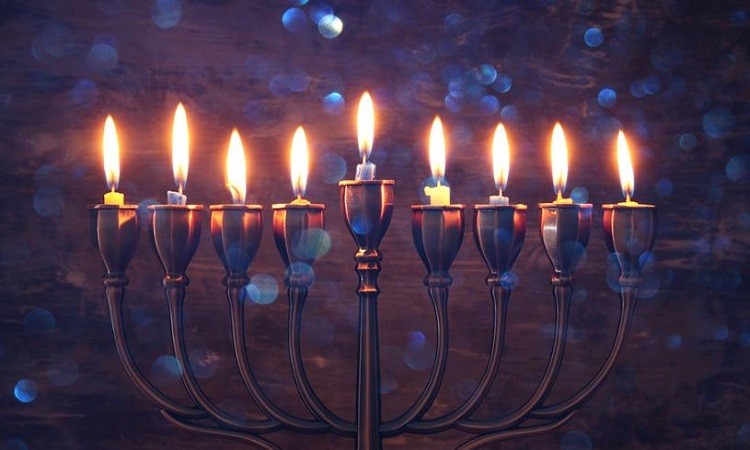
The festival of Hanukkah, also known as Chanukah, holds a significant place in the Jewish calendar and culture. Commemorating the triumph of light over darkness, this eight-day celebration is steeped in history, tradition, and symbolism. This year, Jews around the world began observing Hanukkah on the evening of December 7, marking the start of a joyous period filled with rituals, family gatherings, and the illumination of lights.
In various Jewish communities across the globe, the festival commenced with the lighting of lamps at significant locations such as the Keneseth Eliyahoo Synagogue in Kala Ghoda, a prominent hub for Jewish cultural and religious festivities in Mumbai, India. This act of kindling lamps is central to Hanukkah and is symbolized through the lighting of the Hanukiah, a special candelabra with nine flames. Jewish households also participated in this tradition, adorning their homes with these lighted candelabras, fostering a warm and festive atmosphere.
Moreover, at the Shaar Hashamaim, also known as the Gate of Heaven Synagogue in Thane, which boasts one of India's largest Jewish populations, the daily religious service carried significant rituals. At 7.30 am each day, a ceremonial practice took place, involving the reverential removal of the Torah—the holy book—from its designated ark. This solemn moment was accompanied by the reading of verses from the sacred text, particularly emphasizing passages related to the dedication of light. Within the rich tapestry of Jewish symbolism, the menorah—a symbolic representation of light—holds profound significance during Hanukkah, further underscoring the festival's themes of illumination and dedication.
At its core, Hanukkah commemorates the rededication of the Holy Temple in Jerusalem during the second century BCE, following a successful revolt against oppressive rulers. The central miracle of Hanukkah, as narrated in Jewish tradition, is the story of a single day's worth of oil miraculously lasting for eight days, enabling the menorah in the Temple to remain lit continuously. Hence, the festival extends over eight days, with each day marked by the kindling of an additional candle on the Hanukiah, symbolizing the progressive increase in light and joy throughout the celebration.
In essence, Hanukkah serves as a time for reflection on perseverance, faith, and the enduring spirit of the Jewish people. It stands as a reminder of the importance of preserving cultural heritage, cherishing moments of unity and family, and embracing the metaphorical light that guides individuals through life's challenges.
As Jews around the world observe Hanukkah, the festival serves not only as a celebration of historical events but also as a beacon of hope, spreading warmth, joy, and the spirit of togetherness among communities, transcending geographical boundaries and uniting hearts in the radiant glow of its traditions.
Honoring the Immaculate Conception: St.Mary's Graceful Solemnity, December 8
History of Mistletoe: Origins and Traditions Behind this Christmas Symbol